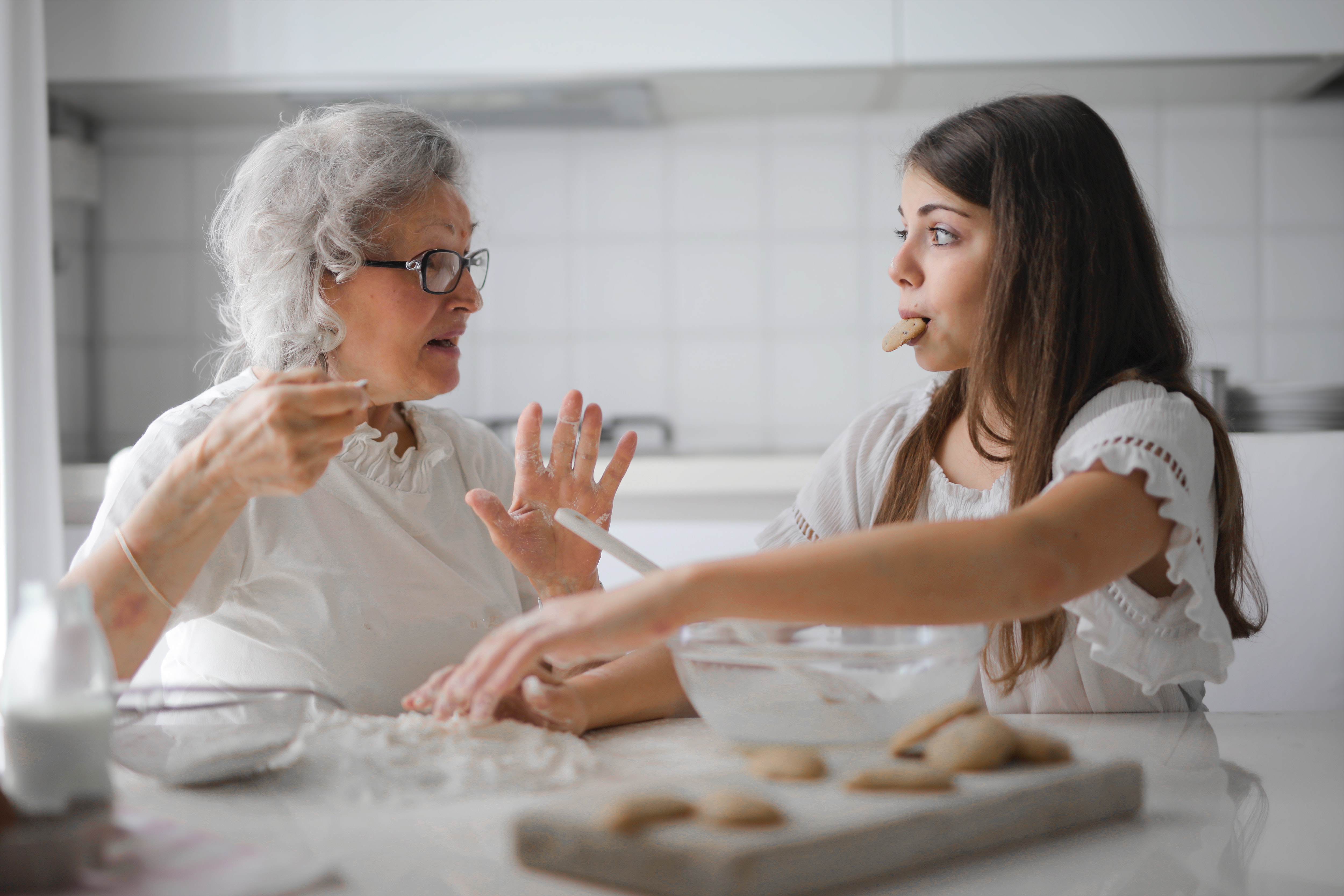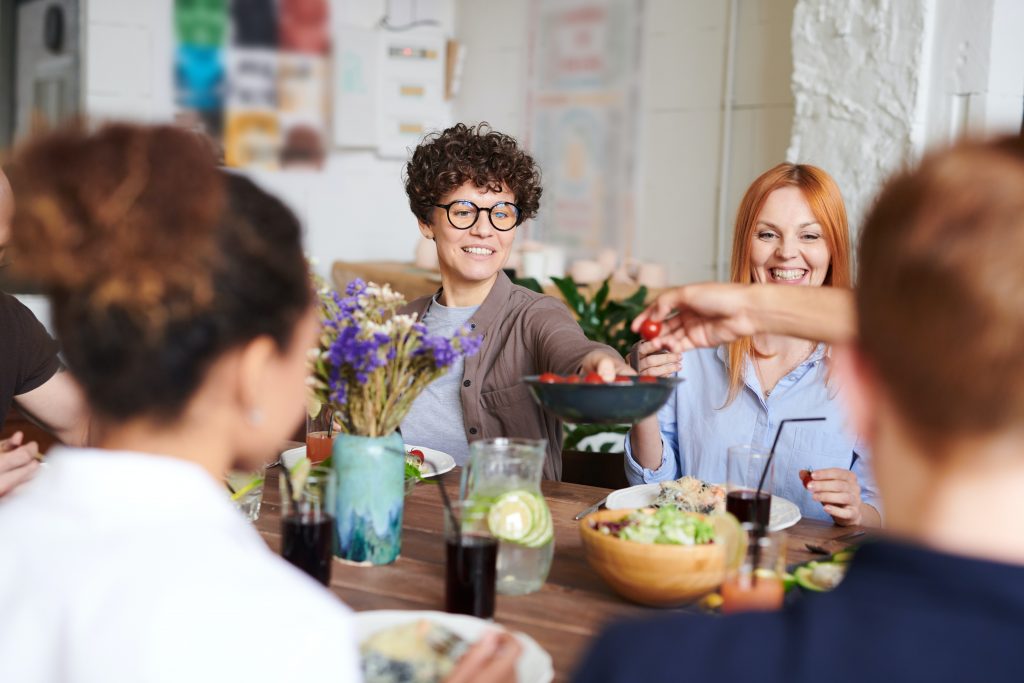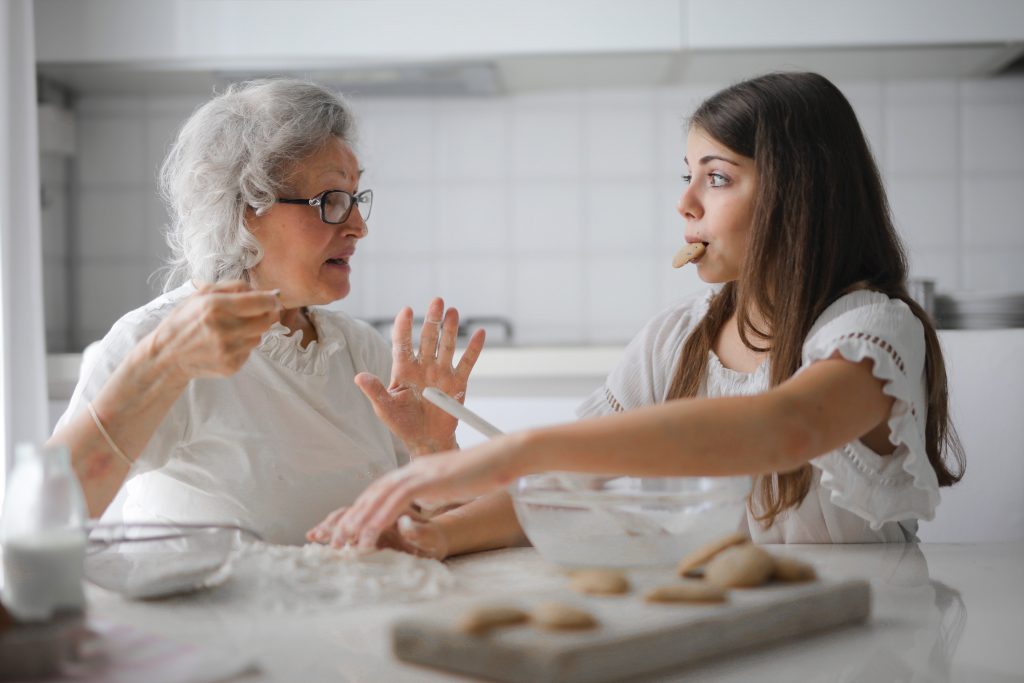
Feeling the Love: Grandparents and the Importance of Intergenerational Support
Older family members back home can offer expat children and teens a special kind of love, and memories that last a lifetime. International youth empowerment consultant Natasha Winnard shares her story, as well as pointers for supporting mobile kids to remain connected with their grandparents and/or adult relatives – so they can benefit from intergenerational support.
Moving overseas often means saying goodbye to grandparents or other family elders. Those children lucky enough to still have a grandma or grandpa – or older aunts and uncles – in their lives benefit from something called “intergenerational support”. Intergenerational support is a two-way relationship that benefits everyone’s wellbeing. Our children receive the support of older and (sometimes!) wiser relatives, and these memories last well into adulthood. In turn, the relatives gain emotional benefits from being needed and helping children find their path in life.
Grandparents: my biggest fans!
One of my earliest memories of growing up in England was visiting my grandparents and watching my grandfather’s slideshows of their annual holiday to visit my cousins in Canada. I remember my grandparents always being so proud, and supportive of the opportunity that my uncle had to work overseas. Yes, they missed them, but it was always a conversation about maximising the quality time they had together.
When I left England at the age of 27 for my first international post in The Philippines, my grandparents were equally excited for me. My gran and I wrote to each other every month. She would start each letter by responding to all my news with wonderful insights, and enthusiasm for my work achievements, new friendships and exciting travel opportunities.
She would tell me all about what was growing in their garden (they were big gardeners!); share news of visits with family and friends; and what they had been doing since she last wrote. She’d often include a newspaper cutting that connected our lives. With every letter, she would also send throat sweets with the note “a sore throat is a sign you need to rest a bit more” and an air mail envelope “so you can keep in touch with your Canadian cousins”.
When I visited England each summer, she would say: “We would love to see you, if you have time, but we know that your time at home is precious.” Of course, I always visited them.
So how can we help our own mobile kids have the same sort of supportive and nurturing relationships with adult relatives in their lives?
What can we do to make sure that they remain connected and supported?
Keeping the connection alive
Here are 6 ways to help your kids stay connected with their grandparents and/or adult relatives:
- Model connections
First, we need to model this to our kids in our own behaviours. We need to show our kids how we stay meaningfully connected to their adult relatives. That means regular Zoom/Skype calls, or emails, or even a family Instagram account to keep the generations connected to each other.
- Make time
We need to consciously make time to help our kids nurture these relationships. We need to schedule conversations as we would an after-school club. With teenagers, we need to time these conversations carefully. Expecting most teenagers to have a meaningful conversation with an adult relative before 11am on a weekend morning is a recipe for poor communication!
- Help with information
We need to help prepare our kids – and their elderly relatives – with a few topics they can talk about. For example, “Aunty played in a golf competition on Saturday”, “Grandad has a new puppy”, or “Sam’s loving Boy Scouts at the moment and he’s working hard on his social studies project on farming in Japan.”.
- Intentionally plan face-to-face time together
When our kids can physically spend time with adult relatives it needs to be intentionally planned to maximise interests (this is especially important to engage teenagers) and with a focus on quality time together.
- Fill in the gaps
I recognise that my gran was a unique and very special person who had incredible levels of empathy. Many adult relatives may need help understanding the lives our kids are living. Don’t take it personally when they don’t show an interest in something that is important to you and your family. Instead, help them to understand.
- Don’t force connections
As with all families, there will be adult family members with whom we naturally connect and want to nurture connections. While our kids are young, it’s our job to help them nurture connections. But as our kids grow, they will figure out who takes a genuine interest in their lives and who they want to nurture connections with.
Over time, these intergenerational connections will provide our kids with an extra tier of wellbeing to support us raising them. These connections will also develop intergenerational support and communication skills. This will serve them well as they leave home, begin their adult lives, and go into the workplace.
What role did grandparents or adult relatives play in your childhood ? If you are a parent, what tips do you have for helping kids stay connected with their extended family?
ABOUT THE AUTHOR
Natasha Winnard is an international education and youth empowerment consultant fuelled by a passion to support and guide young people to thrive. She has worked with amazing children, young people, their families and educators for over 25 years in international schools and communities in Europe, Asia, Africa and South America. Natasha Winnard Consultancy provides holistic, personalized guidance for young people and their families looking for support in the world of international education.










You’ve opened my eyes to new perspectives. Thank you for such a thought-provoking post.
Dear Barrett
And thank you for reading it, and sharing your feedback.
Best wishes
Vivian